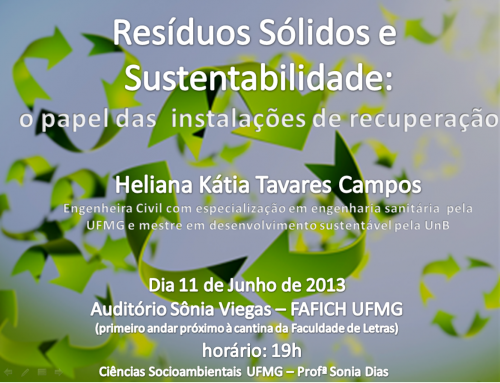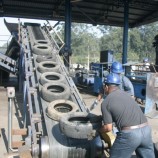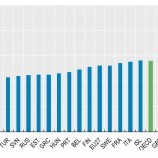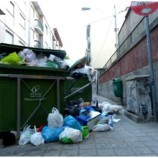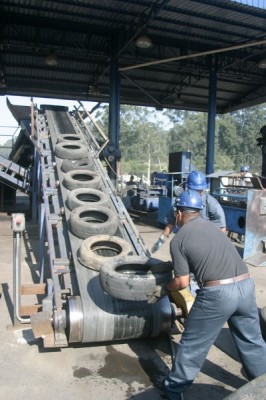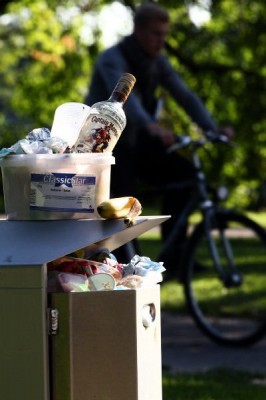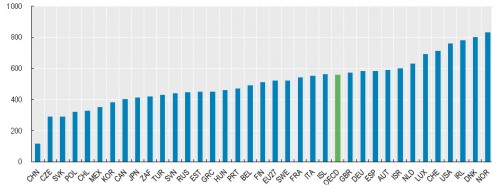The 4th National Environmental Conference

Within Brazil’s three spheres of federal and state government, there are several institutionalized legal instruments such as the Ecological ICMS and city administrations themselves, all of which are important means for sustainable waste management.
The most emblematic was the National Policy on Solid Waste – Brazilian Law 12.305/2010 which is definitive regarding the mandatory eradication of garbage heaps being deposited in landfills devoid of the numerous necessary treatment procedures. Its implications come into effect in August 2014.
The implementation of reverse logistics and shared responsibility, with the definition and formalization of making responsible each individual industry sector involved, could be the differential needed to fulfill the goals set in the National Solid Waste Policy. The paradigms of production process will be changed. The concept of product life cycle and supply chain is being introduced, where solid waste is no longer the end of the line but the beginning of a new cycle.
Products listed for reverse logistics are: pesticides—their waste and packaging, batteries, tires, lubricants—their waste materials and packaging; fluorescent light bulbs of sodium vapor, mercury and mixed light; electronic products and their components.
The importance that the Ministry of Environment assigns to this issue is even more evident after choosing the National Solid Waste Policy as the central theme for the 4th National Environmental Conference in 2013. The debate is open to all of society and culminates in Brasilia in the week of 24 to 27, October. We are urged to think about the best ways to take advantage of this opportunity on behalf of the efficient management of municipal waste.
The lack of institutional development within the three spheres of government in relation to solid waste management and the national coordination difficulties being faced in the process should not be interpreted as a hindering factor. Rather, they should be seen as a challenge in facing an accumulating problem incurring environmental, social and economic damages not yet fully measured.
If so much improvement in conventional waste management is needed, what can be said for the case of reverse logistics, shared responsibility and sectorial agreements? We must define who will pay the bill and how solid wastes will backflow. This will depend on agreements made between the concerned parties. Therefore, the voice of municipal governments must be heard loud and clear, defending the rights of city administrations responsible for the payment of municipal solid waste management services.
The challenge for Brazil is to reach an agreement between the different branches of government concerning the procedures to be adopted for the feasibility of this proposal. Therefore, we must look to the future, face the present problems, correct the mistakes of the past and envision situations that are yet to be explored. For this, knowledge of successful experiences in other countries that have implemented reverse logistics, as well as the planning and establishment of new models of city administration should be pursued.
We have to come up with something new, in reforming the industry sectors with sights set on sustainable waste management systems.
Therefore, the training of municipal administrators, the implementation of regionalized management for solid waste through the establishment of inter-municipal public consortia, service fees; accountability of all components of the production chain in an extensive database, education and social mobilization are all necessary factors for an effective equation. Only then can Brazil join modern waste management with the tools necessary for monitoring and evaluating expected progress. It is necessary to reform this industry sector for the creation of a system built and articulated by the three spheres of government.
Related Articles


